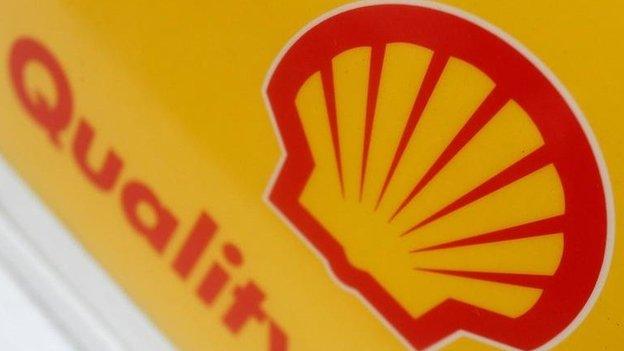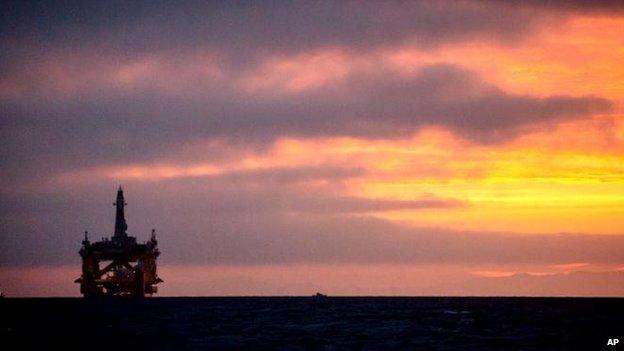Light at the end of the tunnel for Shell?
- Published
- comments

Is there light at the end of the tunnel for Shell?
That is what the Anglo-Dutch oil giant would want to see as its first quarter profits fell by a notable 56% to $3.2bn. The $7.3bn earned in the same quarter a year ago seems a distant memory, which was before the big oil plunge that began last summer.
The earnings would have been worse if not for an increase in profits from downstream refining and trading, which rose to $2.6bn from $1.6bn last year. It helped Shell to generate figures that were better than analysts' predictions, which was that profits would fall to $2.5bn or so. After all, oil and gas production earnings fell dramatically to just $675m from $5.7bn.
This is a similar to what BP and Total have reported - downstream earnings cushioning the impact from a significant drop in earnings from production. The factors at play are familiar ones. There's greater supply in the US which has not been offset by Opec. Plus, weaker global economic growth and therefore demand have contributed to oil prices dropping from more than $115 per barrel last summer. However, having dipped below $50 a barrel in January, they have recovered to about $66 now, which is the highest this year.
That's where there are some signs of stabilising oil prices. But, I should stress, there are more signs of volatility than stability and here's why.
Brent crude has rallied in the past month and even approximates a bull market.
Oil prices have risen by about 20% since the middle of March from less than $55 per barrel to $66 at present. It helped the eurozone escape deflation in April with the annual inflation rate hitting 0%, up from -0.1% in March.

But it's not the only surge by oil price rises this year. Prices rose from just over $50 per barrel by around $10 between mid-January and mid-February only to fall again in March.
So there is likely to be continued volatility while the sector adjusts.
And that is indeed what the oil majors are doing. Cutting investment by billions in places like Africa and Qatar, selling assets, and reducing costs are among the measures being taken by Shell, Total, and others. Also, the number of oil rigs has fallen by more than half in the US and shale producers are now focusing on the most productive sites. There's also the response from Opec, which is closely monitored, particularly as the landscape shifts around Iran.
The International Energy Agency sees the outlook for oil prices as getting "murkier" while the global oil market adjusts.
One example of the divide in opinion is seen in markets. Hedge funds have placed a big bet on an oil rally, while oil producers have rushed to lock in contracts to protect against future price falls.
For Shell in any case, they are moving ahead with their takeover of BG Group for £47bn that I've written about before. So, at least one trend appears to be intact, which is the move to consolidate. It suggests that oil majors will be a big part of a year that's shaping up to be one characterised by mega mergers. At the end of that particular tunnel, Shell and the rest of the oil industry could look very different by the end of the year.